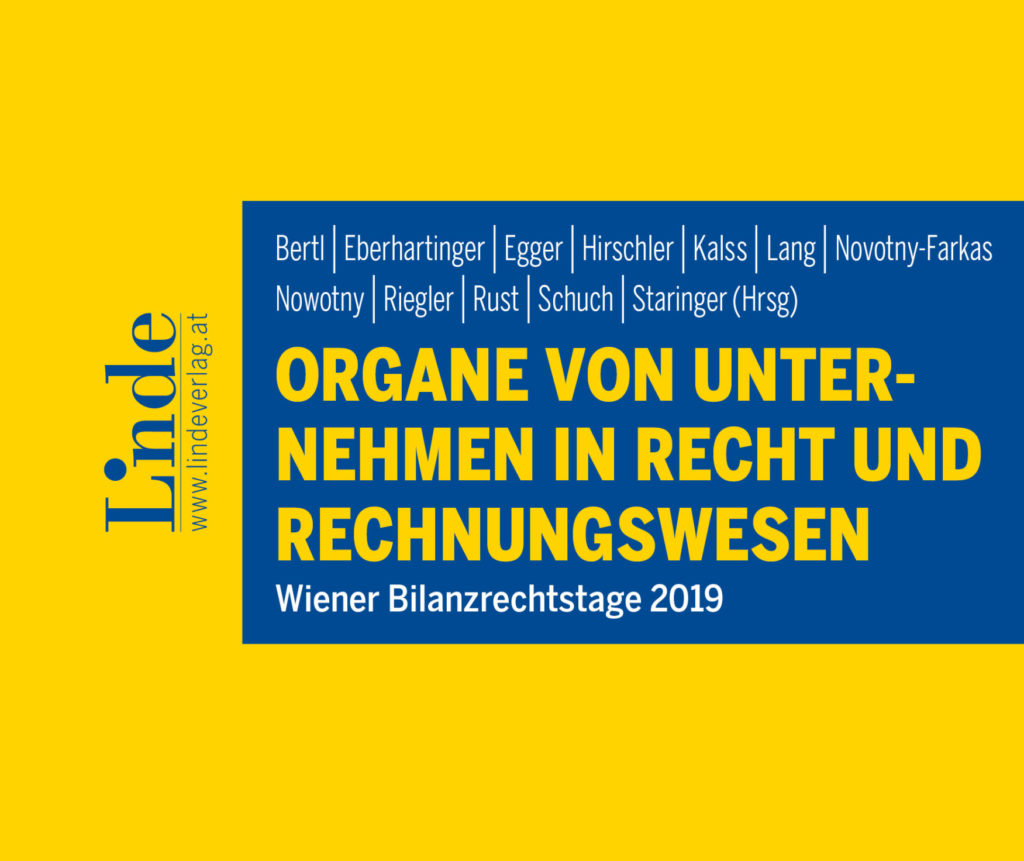In 2019, I presented at the “Wiener Bilanzrechtstage 2019” in Vienna about the taxation of directors’ fees under tax treaty law. Now the conference book “Organe von Unternehmen in Recht und Rechnungswesen” including my contribution “Geschäftsführer im Internationalen Steuerrecht” has been published.

Who is the economic employer under a tax treaty when a director works for serveral group companies?
From an Austrian and German perspective, only directors’ fees received by members of a supervisory board (non-executive directors) are covered by the special rule for directors’ fees of Article 16 of the OECD Model. Thus, directors’ fees received by managers (executive directors) normally constitute income from employment and fall under Article 15 of the OECD Model.
This means that the taxation of the remuneration depends on the place of work principle and the meaning of the undefined treaty term “employer”, which is now interpreted in an economic manner. In MNEs, managers are often employed by one company (e.g. the group parent) and also work as executive director for another group company. Under the transfer pricing rules, at least some part of the manager’s remuneration has to be charged to the other group company. While this group company economically bear the remuneration, it is unclear whether it is the economic employer and bears the remuneration of the manager as such (contract of service) or whether it is only a recipient of a group service and bears the remuneration only as part of an arm’s length service fee (contract for services).
I argue that group charges alone should not lead to the conclusion that the company that economically bears the cost of the remuneration is the employer of the manager for tax treaty purposes. Instead, various employer functions need to be considered. It has to be determined which company mainly exercises the relevant employer functions. For instance, if the parent company exercises substancial influence over the daily business of another group company to which the manager has been assigned, this is an indication that the parent company remained the economic employer of the manager and is therefore able to provide a group service.
Special domestic allocation rule addressing interposted management corporations
In my contribution, I also address the special anti-avoidance rule in § 2 para. 4a of the Austrian Income Tax Act. In certain circumstances, this rule disregards a management corporation owned by a manager that provides manager’s services to another (unrelated) company. Thus, the remuneration is allocated directly to the executive director. If the interposted company later pays a dividend, this further has no tax consequences in Austria since the remuneration has already been taxed at the level of the individual.
In order to avoid international juridical double taxation when the remuneration is taxed both abroad (corporate income tax: CIT) and in Austria (individual income tax: IIT), the Austrian tax administration is prepared to apply the principles of the Partnership Report and to grant an exemption or credit in Austria. If the remuneration paid to the interposed management corporation is subject to CIT abroad (because the other country does not have a similar look-through rule), the Austrian tax administration is able to grant an exemption for the IIT otherwise payable in Austria.
This interaction of the special anti-avoidance rule in § 2 para. 4a of the Austrian Income Tax Act and the principles of the Partnership Report might theoretically also result in a tax saving. Instead of paying up to 55% Austrian IIT (or first 25% Austrian CIT and later 27,5% Austrian withholding tax on dividends if the look-through rule was not applicable), the manager’s remuneration could be subject to foreign CIT only. According to the Austrian tax administration, there would also be no Austrian tax on dividend distributions. Most probably, however, the tax administration would abstain from applying the principles of the Partnership Report in such cases.
Overall, the special anti-avoidance rule is a good example for a rule that was designed having domestic cases in mind. Thus, cross-border cases might become quite complex and lead to unintended situations of double taxation, and to new loopholes.
